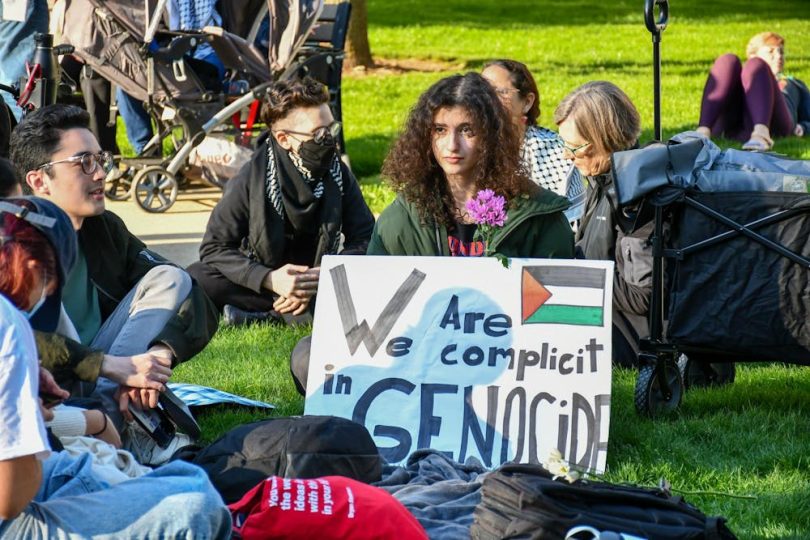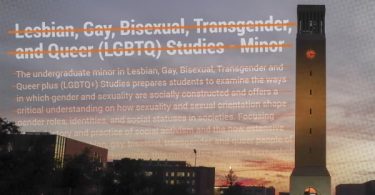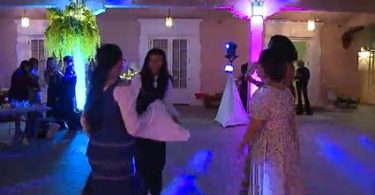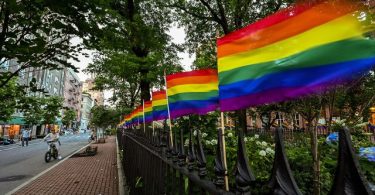Flora x. Tang
Today’s post is from Flora x. Tang, a doctoral candidate in theology and peace studies at the University of Notre Dame, where she writes and researches about post-traumatic theology, queer theology, and decolonial Asian theology. Flora has previously worked as a hospital chaplain, a campus ministry fellow, and a service-learning program coordinator for college students. Flora is originally from Beijing, China and currently lives in South Bend, Indiana.
Several months ago, a short clip of Pope Francis speaking during a 60 Minutes interview went viral on my social media feed: the pope had firmly and curtly replied “no” when interviewer Norah O’Donnell asked about the possibility of opening a discussion around women deacons. Words of disappointment and anger from my queer and feminist Catholic friends filled my social media timeline, prompting the re-emergence of the somber yet familiar conversation of “should we stay?” Should we stay in a patriarchal and heterosexist Catholic Church that seems to only want to push women and queer people further onto the margins.
I let the papal interview play on, until I got to a clip that I had not yet seen reposted on my social media feed. “Every evening at 7pm,” the pope spoke softly, “I call the parish in Gaza.” The pope recounts the dire conditions of starvation and siege the parishioners face every day. When asked about what he tells the Gazan Catholic priest and his six hundred parishioners, the pope simply responds, “I listen.”
Here, I paused.
This clip was not shared nearly as widely on social media in my progressive queer Catholic circles. Yet, it was precisely what I needed on that summer day after an exhausting academic year of participating in protests, rallies, teach-ins, and educational events to advocate for a ceasefire in Israel and Gaza. In a time where my limited activism efforts from South Bend, Indiana seem distant and futile, I was reminded that I (somehow!) am indeed in communion with the church in Gaza–a church that shrinks each day as its members are killed by snipers and its buildings remain under siege.
In a world where nobody in positions of power can hear or listen to the cries of the people in Gaza, I was reminded that perhaps the church does listen.
But more importantly, I was reminded that God listens.
As a queer Catholic woman, I often feel distant from the institutional Catholic Church, its liturgies, and its histories. Church histories seem to exclude people like me, and I often don’t see myself in the church’s stories. The more I protested against war, the more I spoke at rallies about Catholic Social Teaching’s demands for peace and justice, the more I spoke to my students about how to respond to this moment of multiple human rights crises the more I felt spiritually closer to the long tradition of Catholic peacebuilders who are my ancestors in the church.
For the first time in a long time, peace protests and rallies were where the Catholic tradition that I inherited feels like home. I knew that the long tradition of Catholic peacebuilders–from Blessed Franz Jaggerstatter who died in refusal to join to Nazi army, to Dorothy Day and Fr. Dan Berrigan who protested the Vietnam War–are walking with me, and that I am humbly (but proudly) walking in their footsteps.
Students at the University of Notre Dame protesting the ongoing genocide in Gaza in spring 2024
My queer Catholic identity also serves as a witness when I am faced with questions about why I advocate for a ceasefire in Gaza when Hamas, the Islamist group that governs Gaza, holds explicitly anti-LGBTQ stances and policies. Palestinian homophobia is often cited as a reason why queer people like myself should stop advocating for the survival and flourishing of people in Gaza. When faced with these questions, I tell people about a similar line of questioning (mentioned earlier in this post) that I also frequently receive: since the Catholic Church and many members of its leadership are explicitly anti-LGBTQ and patriarchal, why do you still teach and write Catholic theology? Why do you still remain? Why care about an often-homophobic tradition and its people, instead of allowing it to burn to the ground?
I answer by talking about the harms that questions like these can cause already-marginalized people who exist within homophobic structures. I tell people that just as queer people (like myself) exist within structures such as the Catholic Church, queer Palestinians in Gaza also exist, and should never be forgotten or left to die. I tell people stories of my family members in China, who have previously never heard of the terms “gay” or “lesbian” (either in English or in their native tongue), but who treat me and my openly queer friends with immediate acceptance and love. I tell people about my love for even those family members back in China who do not know that I am queer–that those people continue to be my family, even if they may never accept my identity. I tell people about my faith, which teaches me that no matter their personal views or prejudices, the people in Gaza, the West Bank, and Israel all deserve to live.
I tell people about my Catholic faith, which teaches me to extend mercy to others, including people who do not extend the same mercy toward me.
Today, this Catholic call to mercy and justice also calls me to remain in an imperfect church that the pope, the Latin Patriarch of Jerusalem, and Catholic peacebuilders around the world who, through their words and actions, have been tirelessly advocating for a ceasefire, and extending God’s mercy to the often-villainized people of Gaza and to the (up until today) 41,712 Palestinians and 1,139 Israelis who have been killed since October 2023.
So I stay within this imperfect church that does extend its mercy to the “least of these,” even if the church’s mercy is not extended to me (in my identity as a queer woman) at this particular time or in the 60 Minutes papal interview. I stay in this prophetic tradition that says “no more” to the burning of children, the bombing of homes, and that listens to the cry of the Gazans and the cry of the poor. I stay in this imperfect tradition of mercy, so that the church’s definition of mercy will continue to expand.
I stay, knowing that by being in solidarity with those on the margins of empire, as many Catholic peacemakers continue to do, my wavering faith will not be extinguished.
—Flora x. Tang, September ??, 2024







